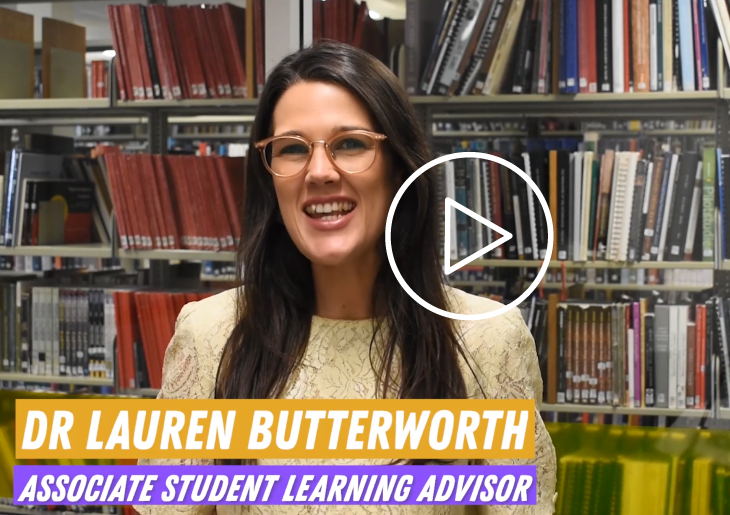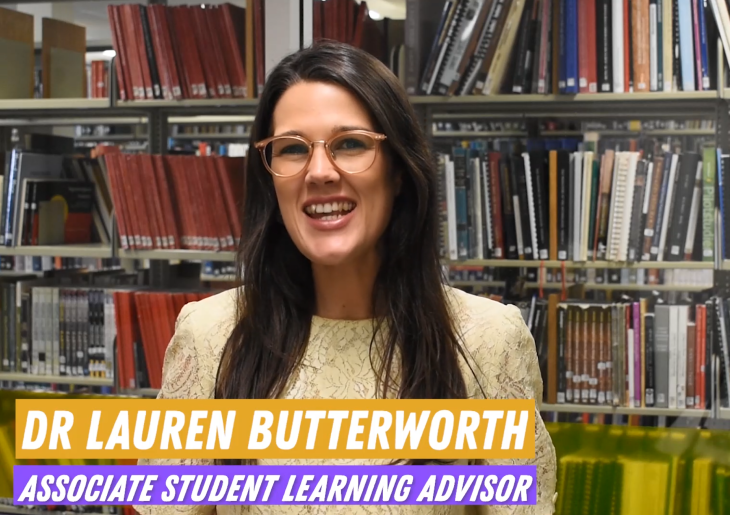
Hi Flinders fam, it’s me Lauren with another episode of Like a Boss.
This week, we’re unpacking the topic of failure. Yes. Failure. That crushing sense of defeat, of devastation or humiliation, feelings and sensations we all try so desperately to avoid. But I’m here today to try to convince you that, actually, failure is something to be embraced and that learning how to fail means learning how to succeed.
When I talk about failure, what I really mean is any area where we don’t perform as well as we want to, and it might feel like failure. Perhaps we were aiming for a distinction and received a pass. Or we wanted to win a premiership, but we came runner up. Or maybe we did actually bomb out on something and totally and completely stuffed it up. The disappointment we feel when we don’t succeed can be devastating. For me, it’s the kind of thing that sits and swirls around in my gut. It makes me feel guilty, anxious, worthless, and unmotivated.
But, only for a little bit. Because I really try not to let myself wallow in that feeling and, as soon as I can, I turn my attention to what I can learn from the situation. And this isn’t something that comes naturally, by the way. This is something I’ve trained myself to do. It also doesn’t mean that it changes the high expectations that I put on myself and my projects. But it does mean that I know that nothing that I do is a waste of time or resources, because if something doesn’t work out, there’s always something to be gained.
I spoke to Matthew Flinders Distinguished Professor Tracey Wade to help us unpack this topic and discover how we can learn to approach it as a tool for success. First, she’s going to tell us what failure really is, then we’re going to outline some strategies for turning failure into a tool for learning, growth and, ultimately, success!
What does it mean to ‘fail’?
Tracey Wade: I’m Matthew Flinders Distinguished Professor Tracey Wade. I work in Psychology here at Flinders University. I have also trained previously as a clinical psychologist. I work mainly in the areas of eating disorders, and I’m also interested in perfectionism.
I think Thomas Edison probably defined it the best way because he said, ‘I haven’t failed, I’ve just found 10,000 ways that didn’t work’. I think it’s a good way to repivot what failure means. It’s basically saying the strategy didn’t work out. It might be because it was the wrong strategy, or the wrong time, or it wasn’t the right strategy for that particular person. It’s a pointer to say try another way. I think its really important to say that failure is a normal part of the human condition. The only way to avoid failure is to say nothing, do nothing and produce nothing.
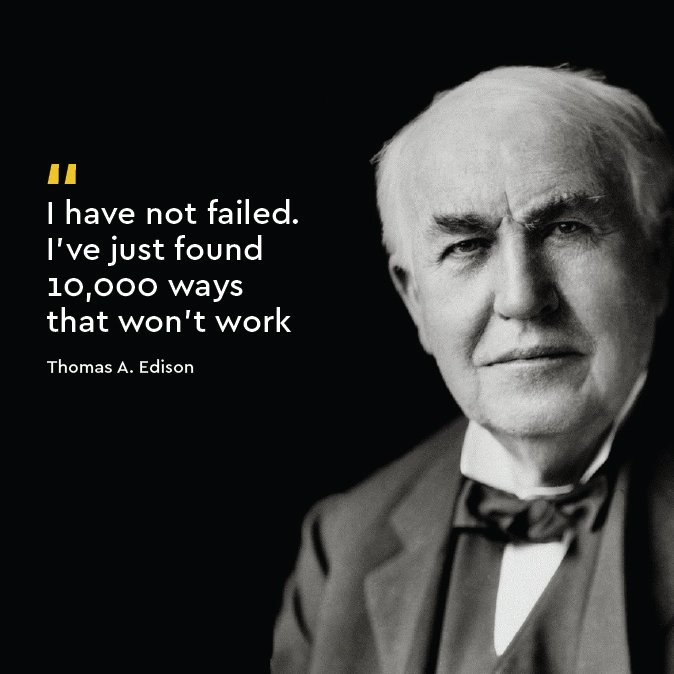
Failure essentially lets us know that this was not the right approach for this time, and based on this experience, let’s think again. So, the real trick about failure is not to think of it as a sign to give up in in terms of approaching the goals that matter to you. It might mean you need to adjust the goal, or try a different strategy, or try different timing. It certainly doesn’t mean giving up. Failure should be a teacher, not an undertaker!
I particularly love the quote that I haven’t failed, I’ve just found 10,000 ways that won’t work because this is, I think, the fundamental thing about failure. Failure is an innate part of discovery, innovation, and experimentation. The vast majority of great discoveries in the world have come through a long process of trying and failing and trying and failing again. Plus, think of all the accidental discoveries that came out of failures. Post-it notes, for example, were created because scientist Spencer Silver was trying to create a super strong adhesive. Well, if you’ve ever used a Post-It Note you’ll know that super strong adhesives they are not. But that failure led to a very handy and innovative product that many of us use on a daily basis (and to a major plot-point of the 90s classic Romy and Michelle’s High School Reunion).
So, what are some strategies that we can use to reframe failure and instead use it as a tool to help us succeed?
1. Accept that failure offers opportunities for growth
Tracey Wade: With people that we work with, we often talk about the Japanese art of Kintsugi which is when you have a broken pot you mend it with melted gold, so when the pot is repaired the breakages are very obvious because you can see the seams. I think failure is like that, it teaches us to embrace the setbacks, embrace vulnerability because that makes us more valuable: it gives us a more valuable and richer experience of life. It teaches us critical lessons we wouldn’t have otherwise come across. It’s never pleasant to have setback, it’s always difficult, but it can be embraced. JK Rowling has some very good YouTube clips on how setbacks taught her that she was far more resilient than she ever realised, and she has friends who are worth more than the price of rubies, and these are things she would not have learned without the setbacks. So, they are opportunities for growth.
There are a lot of inspirational quotes on failure, if you just type it into your search machine there are a number from a range of people who have achieved but have embraced failure and I think sometimes just to get you through a difficult time, having those quotes handy can be that bridge.
===
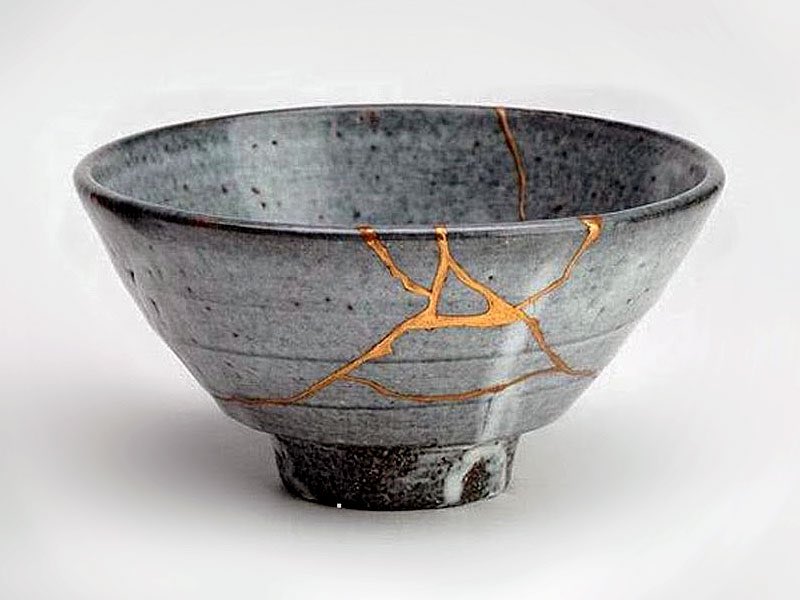
=
2. Realise you don’t need to be an expert before you start!
Tracey Wade: ‘It’s just simply not possible, it doesn’t even make sense because achievement is necessarily informed by failure. You can’t be an expert, you don’t build that, without failure behind you. Expertise takes experience and it takes failure to develop and you just can’t separate out those two things.’

This is a particularly difficult one for people who might have perfectionist tendencies. We think that we need to have all the answers and mitigate all potential issues before we get started on something so that we eliminate all chances of failure. But more often than not, this just delays us, and it can delay us so long that we never end up doing the thing. Plus, we lose out on really valuable experience. We learn best when we do things. We have to put things into practice and test ways and methods and ideas and strategies. This might be as simple as testing out using clearer topic sentences in an essay because you lost marks for structure in a previous paper. ======
The more we fail, the more information and knowledge we have to determine whether or not our approach is the right one and that is what ultimately builds expertise.
3. Make friends with feedback
Tracey Wade: Most feedback is useful – and I should say not all feedback is useful, sometimes people give feedback for motivations apart from what’s best for the person – but you as the individual can sort out what is useful and what is not. Useful feedback is gold. It really takes us out of our own perspective and helps us see the broader picture. That bigger view will help us learn much more usefully.=
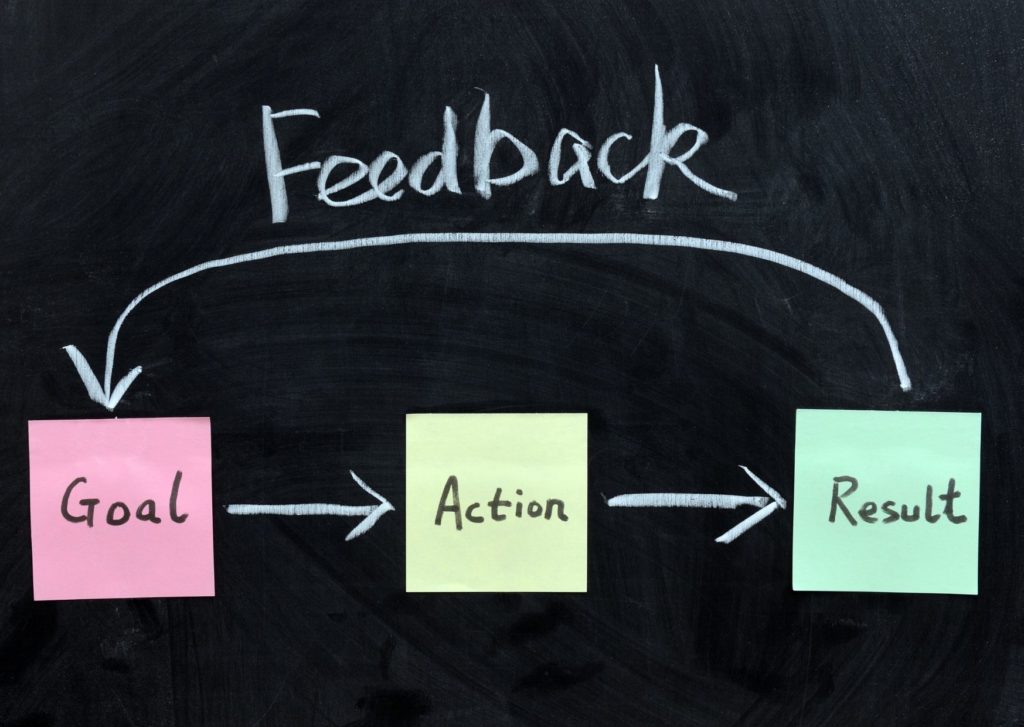
In a university context, learning how to use feedback effectively is one of the most important aspects of success. While many of us may think of feedback as a judgement, good feedback is a learning tool, but we have to commit to actively doing something with it. We also have to remember that feedback is a comment on the work, not a comment on us personally. These can be difficult to separate, particularly what we’re being evaluated on is something that’s important to us.
So when you get feedback, read it carefully and critically. Analyse the marker’s feedback against the assessment criteria and try to judge why you may have lost marks. In many cases, you may feel like you’ve addressed certain criteria, but you may not have addressed it in the appropriate way, or at the level of depth required. So why? What do you think the marker might be looking for that will take it to that next level? Really give yourself time to reflect on both your strengths and your weaknesses.
Use the feedback to make a checklist of issues to follow up on and seek help to find ways to improve for next time. If your comments suggest that you need to work on your sentence structure and expression, seek out resources on writing style or grammar, or come and see an advisor in the Learning Lounge. If your comments suggest that you haven’t addressed something in adequate depth, try asking yourself more critical questions next time, or seek out resources on critical thinking and analysis. Then, use your checklist when your editing your next assignment.
The Student Learning Support Service have some resources on how to use feedback, and a range of resources that can help you act on that feedback and improve.
I hope this quick snapshot about dealing with failure can help you begin to pivot your thinking from seeing failure as something inherently negative, to something really positive.
If you find that you’re genuinely struggling with expectations that you set for yourself, or think you might have some perfectionist tendencies, book an appointment with Health, Counselling and Disability to talk it through. And, as I said, the Student Learning Support Service has a range of resources to help you improve your study skills, your writing, and your numeracy skills.
And remember, the only failure that’s truly a failure, is the failure to learn from our mistakes.
Don’t forget to check out some of the resources below, and otherwise I’ll see you all again after the break!
Resources
Student Learning Support Service: https://students.flinders.edu.au/support/slss
Health, Counselling and Disability: https://students.flinders.edu.au/support/hcd
Centre for Clinical Interventions Perfectionism Workbook: https://www.cci.health.wa.gov.au/Resources/Looking-After-Yourself/Perfectionism
Elizabeth Gilbert, Success, failure and the drive to keep creating: https://www.ted.com/talks/elizabeth_gilbert_success_failure_and_the_drive_to_keep_creating?referrer=playlist-the_benefits_of_failure#t-420988
‘The Benefits of Failure’ TED playlist https://www.ted.com/playlists/418/the_benefits_of_failure
How to Fail with Elizabeth Day podcast: https://podcasts.apple.com/gb/podcast/how-to-fail-with-elizabeth-day/id1407451189


